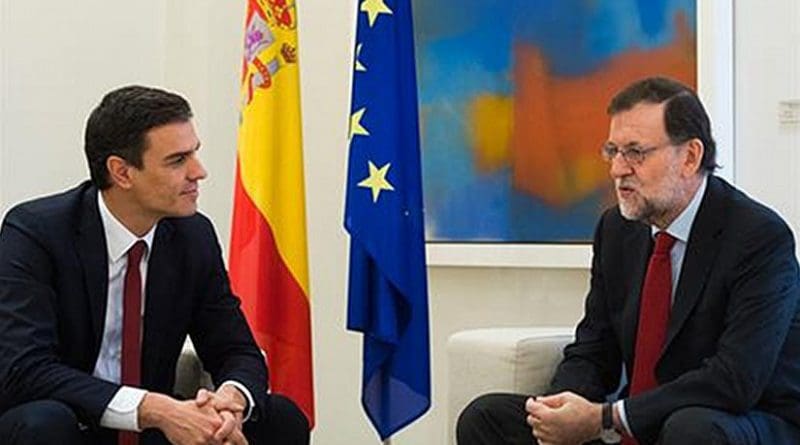Spain’s Fragmented Vote: Modernization Calling – OpEd
By Veni Mouzakiari*
The political system of Spain was the next stop for the most common current phenomenon of the fragmented vote. The center-right and center-left bipartisan system was shaken and a new political adventure has begun.
Spain’s fragmented vote will be analyzed under the impact of the European economic crisis.
Spain managed to obtain recovery rates for the current year after five years of severe fiscal effort. However, long-term unemployment has created significant political changes.
The fragmented vote in Europe does not specify a concrete political solution. The citizens, and especially those, whom the standard of living changed during the crisis, or the citizens who are unable to find entry into the labor market, fail to relate to a political party with a viable economic solution during this particular period.
Economic reasoning
Many analysts trying to analyze the political decay of incumbent, traditional major political parties, present as an excuse the accusation of those parties’ sidedly political commitment to European politics. With this resolution, they seek to explain the rise of nationalistic issues among the societies. However, the structural transformation of the political systems, as we know them from almost ten years ago, is the proof of the changing economic times. The new data of the economy require new policy developments, to reflect the new reality.
The crisis met the phenomenon of overcrowded employment structures in many countries, both in the public and private sector. The economy, however, could not afford to finance such a labor market size due to the financial discipline of hard currency and due to trying to avoid the direct financing of the economy. The disparities in Europe led to the implementation of policies of mistrusting and therefore to policies of discipline. In the particular case of Spain, politics led to labor reforms.
The dogmatic solutions are infertile in countries with high unemployment, which form social pathologies. Strengthening labor demand must be harmonized with the understanding of national production in order that the labor market may be concrete and specified. For example, the lack, or in opposite terms, the overcoming specialization of the employing population are issues to clarify in each national working environment. In other terms, what does the economy need to do to provide jobs?
Political incarnations
The social and economic needs, usually expressed much faster than the official policy, become aware of this. As such, in the times of political crisis, the need to modernize the party comes first.
The new political players in Spain, Podemos and Ciudadanos (Citizens) represent, mainly social requests. More left to PP (Ciudadanos), more left to PSOE (Podemos). This electoral tendency points to new demands, both economically and socially. In general, the new parties enter the central political scene normally based on the expression of corruption, which expression, the incumbents are bound not to express as accurate. Meritocracy is always an inviting programmatic asset.
There, the crushing point between the ‘newcomers’ and the ‘oldies’ is located. This was the case in Spain. The accusation or the reality of corruption in parties is faced with the modernization.
The significant fall of PP points to the need of modernization. On the other hand, the significant drop in PSOE demonstrates a developing political danger for the left. The most apt expression of anti-austerity automatically got votes. This has happened all across Europe, the activist nature of the anti-austerity movements has been successful in claiming votes.
The occupation of the right political space
For the center-right, the reshaping of the political agenda in value-issues and the explanation of a welfare policy in the context of economic orthodoxy is the upcoming political space.
For the center-left, the failure of the evolution of labor rights, must be the bulwark for most of the left political movements, which at the end of the day appear to be always locked in fruitless ideological recriminations.
About the author:
*Veni Mouzakiari, Phd Candidate at the department of International and European Studies, University of Macedonia. Political consultant.
Source:
This article was published by Modern Diplomacy

